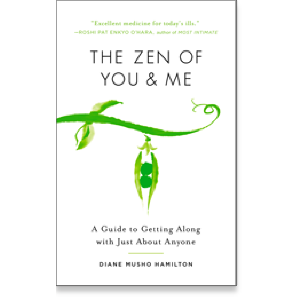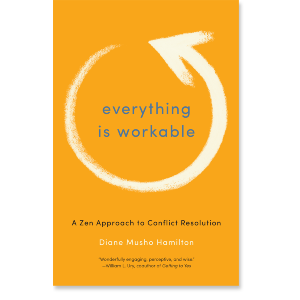I feel so frustrated by my habit of reaching for my phone the moment I open my eyes. Something about the blue-white light, the information, the advertisements in the space I use to rest and reset feels wrong. Starting my day with such a wave of content feels like I am taking away the chance for my heart and mind to approach the day on their own terms.
I have been acutely aware of these habits for some time now. Part of this awareness developed this past May as I took a university summer course centered on evaluating our individual relationships to technology, which, as a soon-to-be college graduate, could not have been more appropriate. Our course-long assignment asked us to logout of and delete the applications for any social media platforms on our phones and computers, and I felt angry, being asked to remove myself from my crafted social media world. My next immediate feeling was shame, knowing all of the ways that the time I spend on social media acts as a buffer between me and my creative projects, as well as my time spent learning.
I started re-downloading applications halfway through the second week.
Our class discussions around the alarming advancement of artificial intelligence and the development of technological warfare made my struggle with my iPhone and Instagram feel quite small, but I came to understand the necessity of evaluating their influence over my own personal sphere. I was grateful for this opportunity to reflect—in light of the social media storm that was the previous autumn.
In my mind, it is impossible to talk about the experience of social media in a way that does not relate to our current cultural climate. Never had I felt the volatility and stress of social platforms to the extent that I did when the 2016 election cycle began. My peers and family members were feeling it, too. Every article I found interesting enough to share became a source of conflict between my community and me. It was a painful experience, unconfined to the digital realm, and through it I’ve developed a better understanding of social media’s ability to influence our lives.
So how, now, do I move forward?
Removing myself from the space hasn’t seemed to be a tenable option. I am a child of the information age, born right smack dab in the middle of the millennial generation. I am also a college student and a creative person. My life, and the lives of my peers, are more tied to social media than many people older than myself may realize. Through these platforms I have been fortunate enough to engage with perspectives and information that might have been otherwise unavailable. In this period of unrest and uncertainty, social media platforms have become a place for communities to flourish, for activists to organize. Social media is not an extra, and it is more than entertainment; it is fully integrated into our relationships, coursework, creative projects, and daily lives. Because of this omnipresence, when we experience pain or uncertainty as a response to online content, it can feel inescapable.
Taming the beast that social media became in my life has been a long process. I’ve looked to my own abilities to empathize, as well as my strengths in defending my values. I’ve learned to place increased weight on my IRL experiences: if activism is important to me, I am better serving my values by participating offline, in my community; if I am experiencing joyous feelings of connection, or painful feelings of separation, I feel more satisfied communicating them to a face that I can read. Placing a greater emphasis on other avenues of action and communication has allowed me to shrink feelings of powerlessness to a manageable size. I understand these methods as mindful practices, and, as is true in other aspects of my life, they have helped me to come away from whatever content I am immersed in and check in with myself, so that I can feel grounded in the present moment and decide what works best for me.
In the last few months, I have had the opportunity to take Diane Musho Hamilton’s new online course, Skillful Communication: A Zen Approach. Centered around skillful communication, the course has brought me confirmation and guidance for some of the practices I have begun as ways of healthily managing the levels of conflict I am sometimes exposed to online. In many ways, the course has brought me a deeper understanding of my own feelings of separation and pain, as well as a guidance toward a greater empathetic perspective.
In one lesson of the course, Hamilton discusses the process of differentiating ourselves from our family members and peers as we grow older. For some, she explains, reintegration eventually occurs after we have found a level of comfort with the ways that we are the same and different from our community. For others, reintegration is stunted, or fails to occur altogether, and estrangement can set in. It is not only parts of my community from whom I have felt myself alienated, but an idealistic world we live in that I don’t believe I will ever be able to reintegrate myself with. This exploration of sameness and difference has helped me to release some of my feelings of guilt and responsibility toward the pain that choosing to stand apart can generate. I am staunchly different from some of the people in my life, and this is natural. I am also not required to hold myself responsible for feeling all of the pain of difference simply because it is present.
Hamilton’s work has also brought me a greater understanding of the power of attention with regard to social media. In the same way that I am able to bring my attention to, say, my toes, and feel a greater awareness of those sensations, I can direct my attention to the workable pieces of difficult content, rather than letting painful details fester. Losing myself in online content is a way of relinquishing my attention that can throw me into unpleasantly vulnerable spaces. By using the power of my attention, I remain open to difference—and through difference, growth, while still keeping my skills for awareness active. I do not have to feel and work through every major global crisis each time I log into my Facebook account. I can use the tools available to me through mindfulness practice to experience and grow in a way that allows me to manage pain and difficulty.
There is value in discipline, something I’ve learned more and more as I’ve gotten older. There is discipline in pushing myself to lean into hurt and uncertainty as a means of growing. Discipline is also present in making time for learning and practicing self-care.
I remind myself to sleep with my phone in another room, and to breathe, as I enter the day on my own terms.
For more information about the course, click here.



